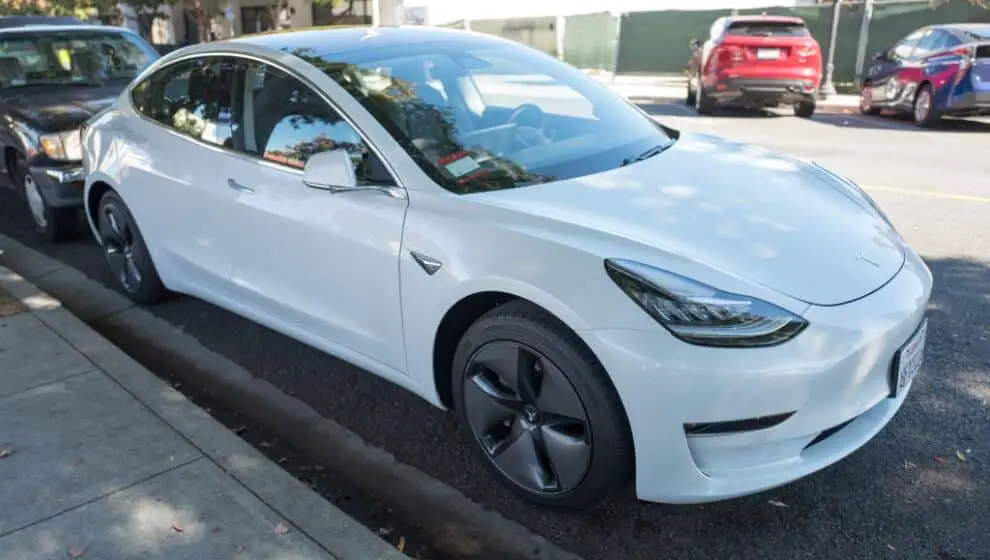The Biden administration has released new tax laws that will make many current electric vehicles (EVs) ineligible for federal credits.
Key Details
- The new regulations issued by the Treasury Department are pushing manufacturers to move supply chains out of China and to the U.S.
- To be eligible for a tax credit, a certain percentage of the components and minerals in each EV must come from America or a country that has a U.S. trade agreement.
- The new rules will go into effect on April 18 and eliminate many currently eligible vehicles, including the Tesla Model 3 sedan.
Why it’s news
To boost EV production in the U.S. and decrease reliance on China, the Biden administration passed the Inflation Reduction Act, which provides up to $7,500 in tax credits for EVs primarily produced in America.
Transportation accounts for nearly 30% of American emissions. To eliminate that number, the U.S. is pushing for EV adoption, but many Americans have stated that the high price of EVs scares them from switching.
More than 50% of Americans say affordability is their primary concern for EVs, and 70% say they expect to pay less than $50,000 for their next car, according to a Deloitte study.
Introducing the Inflation Reduction Act not only lowers the price of EVs for Americans but also helps boost internal EV production as more manufacturers have begun building American factories to meet the tax credit restrictions.
There was a large number of vehicles that qualified for the credit, but this week The Biden Administration announced a new set of rules that will wipe out most of the currently eligible vehicles.
Previously the vehicles and batteries had to be mainly manufactured in the U.S., but the new rules state that at least 50% of the components in an EV battery must be made in North America. And 40% of the minerals used to make the batteries, which often contain nickel, manganese, and cobalt, must come from domestic sources or from countries that have trade agreements with the U.S., according to The New York Times.
The administration hopes the new rules will further reduce America’s reliance on China and other countries while boosting domestic manufacturing.
The rules are to go into effect starting April 18, and a full list of qualifying vehicles will be released in the coming weeks, but some manufacturers are already warning customers that their vehicles will not make the new lineup.
Tesla, the top-performing EV brand, has informed buyers that the least expensive version of its Model 3 sedan, one of the most popular electric cars, will no longer be available for the full $7,500 credit as the vehicle’s battery comes from China.
The Biden administration says in the near future, it will release rules that will clarify how many components manufacturers can use from competing countries, such as China and Russia, and still be eligible for the credits.
The new rules will push car makers that no longer have eligible vehicles to create factories in the U.S. to make vehicles and batteries internally, but it takes years of time and planning to create large manufacturing plants.
Many executives say that the Administration might have to lessen the goals as many Americans will likely wait for the new factories to be built over the next few years to purchase their EVs to receive the credit.
After hearing the comments from the public on the revised rules, it is possible some qualifications could change over the next few months, but for now, the changes will begin in April.
